'My neighbour moved house because of the new mosque'
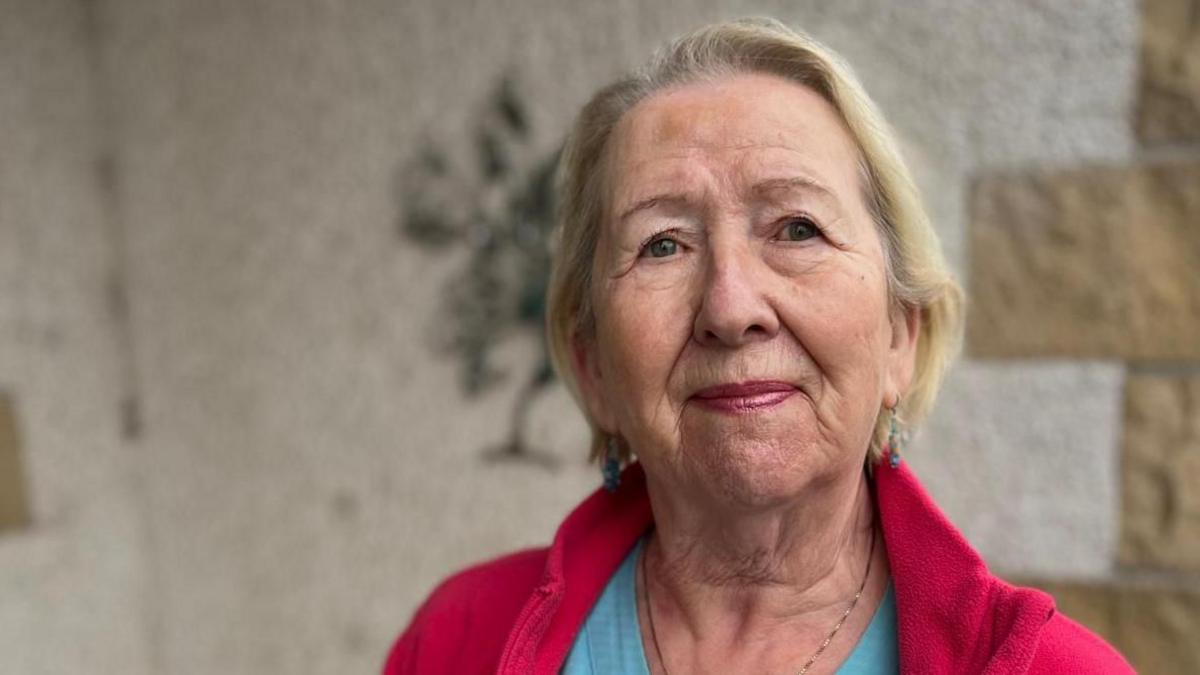
Sheila McLarnon supports plans for a mosque in Dalton-in-Furness but not everyone shares her view
- Published
The construction of a new mosque in a small Cumbrian town is causing division, with some supporting the £2.5m scheme and others vehemently opposed. Visiting the town over two days, we heard from a number of people on both sides. Many did not want to speak publicly but voiced wider fears about asylum seekers, immigration and alleged links to crime. Some expressed extreme views.
Warning: This report contains views some people may find offensive
Sheila McLarnon, a 73-year-old chiropodist, has heard a lot of talk about the development in Dalton-in-Furness.
Some of her patients say things like "I bet they use it as a bomb-making factory", she said. "In the end I had to say I don't want any of that talk here."
But Dave Nelson, a retired welder from nearby Barrow, said mosques were "ruining" Britain.
"If they want to pray, go somewhere else," he said.
Plans for the South Lakes Islamic Centre (SLIC), with three-storey prayer hall and community centre, were drawn up in 2021 by a group of doctors at Furness General Hospital in Barrow, so medics and their families would not have to travel the more than 50 mile (80km) distance to Lancaster to worship.
Permission was given by Barrow Council in December 2022 for the site near Dalton Rugby Club, about a mile from the town centre, with 21 objections and 18 messages of support received.
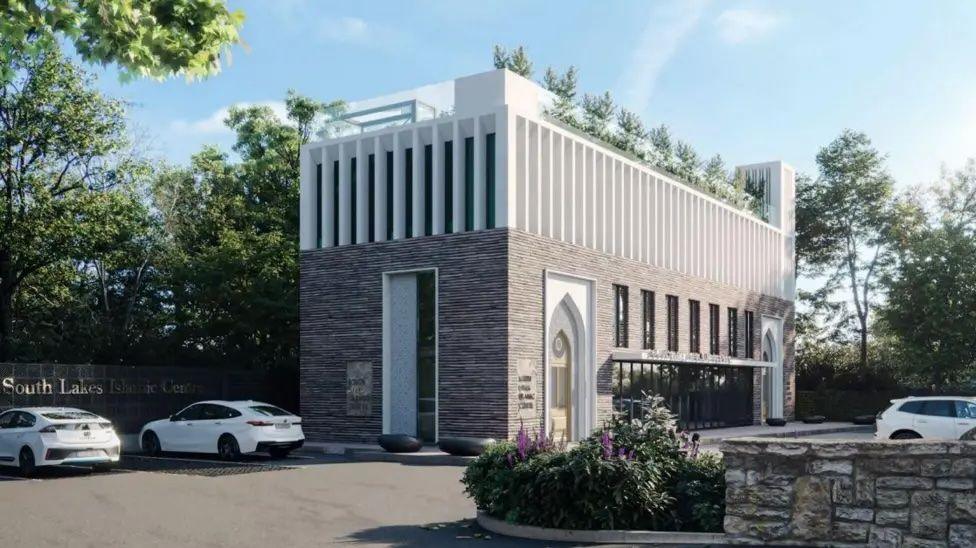
The South Lakes Islamic Centre is being built near Dalton Rugby Club
More than 70,000 people have signed a petition calling for the mosque's approval to be revoked as part of a campaign that has raised in excess of £11,000 to hire a specialist planning barrister.
There have also been a number of demonstrations, with placards waved and insults exchanged with counter protesters. Activists from Hull and Liverpool representing far-right group Britain First have joined them, while UKIP leader Nick Tenconi was filmed outside the building site shouting "traitor" at construction workers.
In a pub in Dalton, the majority of customers were against the plans, though reluctant to give their names. They were adamant their concerns did not stem from racism.
"The simple fact is there's not enough Muslims here to justify it," one man said, while the woman sitting next to him asked why it was needed at all.
A drinker propping up the bar in another nearby pub said most people in the town did not want it.
"It will encourage more Muslims and asylum seekers to the area and the place we call home will become a dumping ground," he said. "So of course we don't want it."
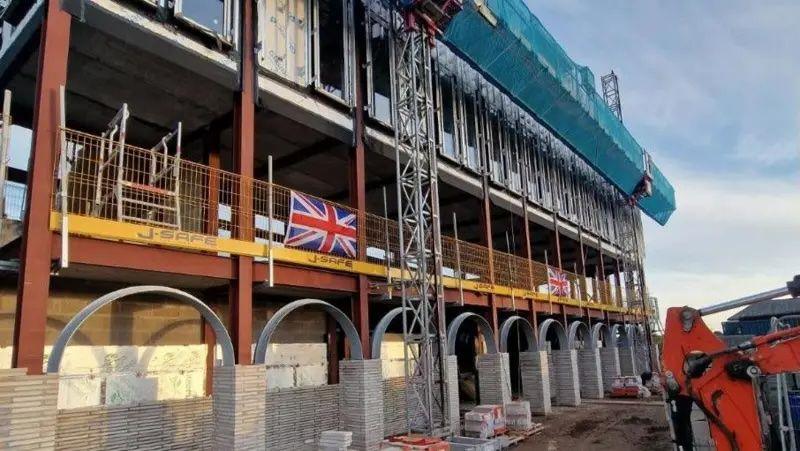
The mosque is currently under construction
There is anger in nearby Barrow as well.
Retired welder Mr Nelson said people coming to the country should "do what the British do".
He said Britain had its "own religions" and he did not want people coming to "preach something else and build another mosque".
Asked what would happen if the doctors who spearheaded plans for the mosque left the area because they had nowhere nearby to pray, he said they were free to go or could pray in their own homes.
Back among Dalton's 8,000 residents, chiropodist Mrs McLarnon said one neighbour so strongly objected to living near the mosque, and the people who would visit it, he moved house.
"A lot of the local people who oppose these plans will no doubt use the general hospital in Barrow," she said.
"I bet they don't refuse to be treated by a Muslim doctor, so it's quite hypocritical really."
She believes many concerns come from ignorance and racism.
"Muslims round here are lovely people and I'm proud to have them as friends," she said.
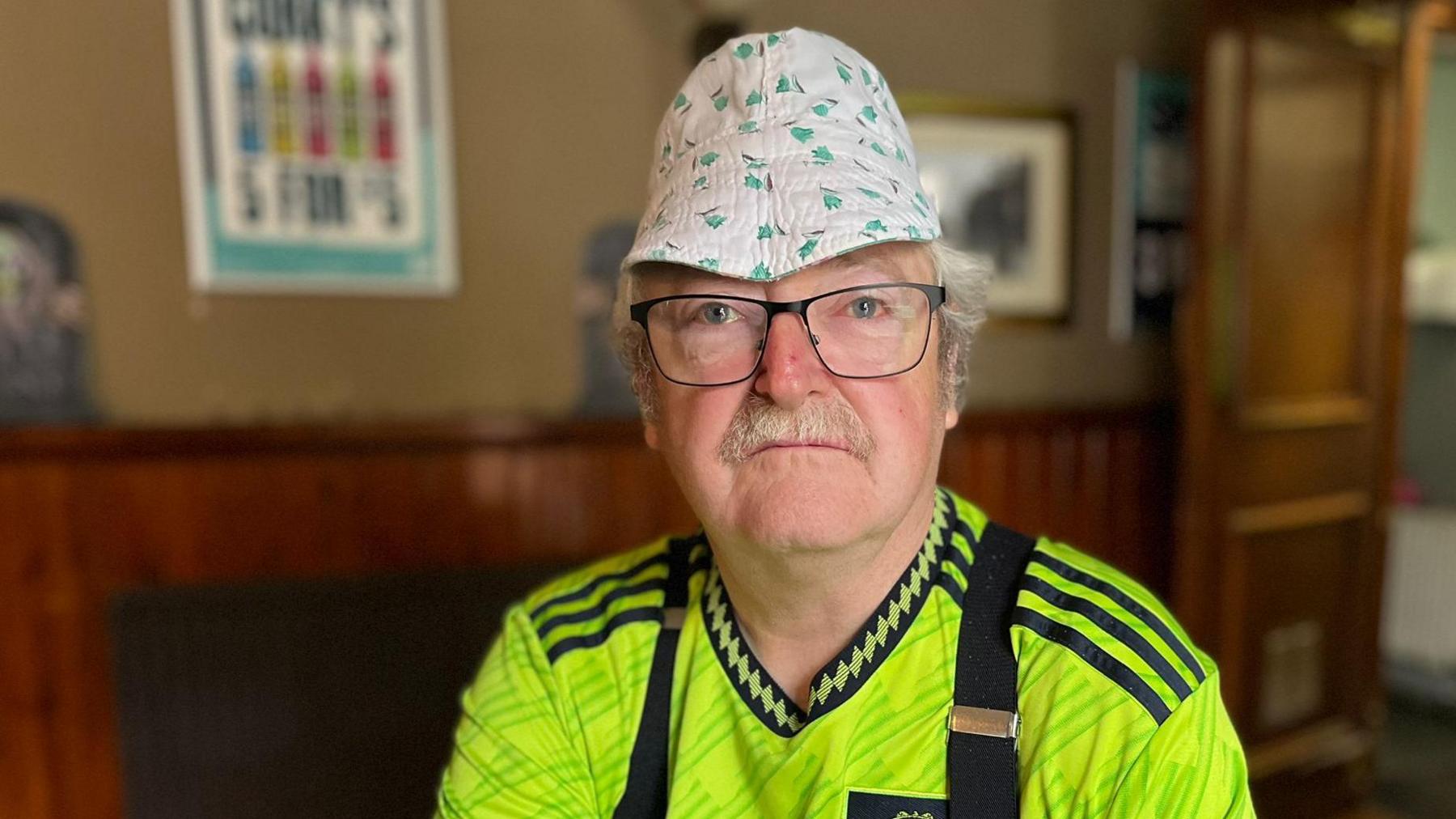
Dave Nelson strongly opposes the mosque
Another Barrow resident, Julianna, who did not want to give her surname, did not accept the mosque was just intended for local people wanting a place to worship.
"I don't believe that - a lot of them are illegal immigrants, and they will start causing trouble and we don't need it," she said.
She also made extreme and unfounded claims about the level and type of harm she believed immigrants caused, and raised concerns about the mosque being near a school.
Some opponents of the mosque point out only 0.4% of the local population would be served by it. Census data from 2021 shows, of a population of about 75,000 people across Barrow and Dalton, 333 described themselves as following the Islamic faith.
Concerns over immigration were also often cited as a reason for objecting against the new centre.
Figures from Westmorland and Furness Council, which replaced Barrow Council in 2023 after a local government reorganisation, show it accommodated 258 asylum seekers in the area last month across 63 houses of multiple occupation and 13 family homes.
It is not known how many of those are Muslim.
But Faizudin Ahmadi, who was granted refugee status last year after fleeing the Taliban, said asylum seekers were "just ordinary people".
The former barrister lives with other Afghan refugees in Barrow, where he works as a garage mechanic while learning English, with a hope of resuming his legal career to help other asylum seekers.
"We are not terrorists or bad people," he said.
"All we want is a prayer place, we are not causing any trouble.
"Other religious people have place to pray - every human has right - and this is our right."
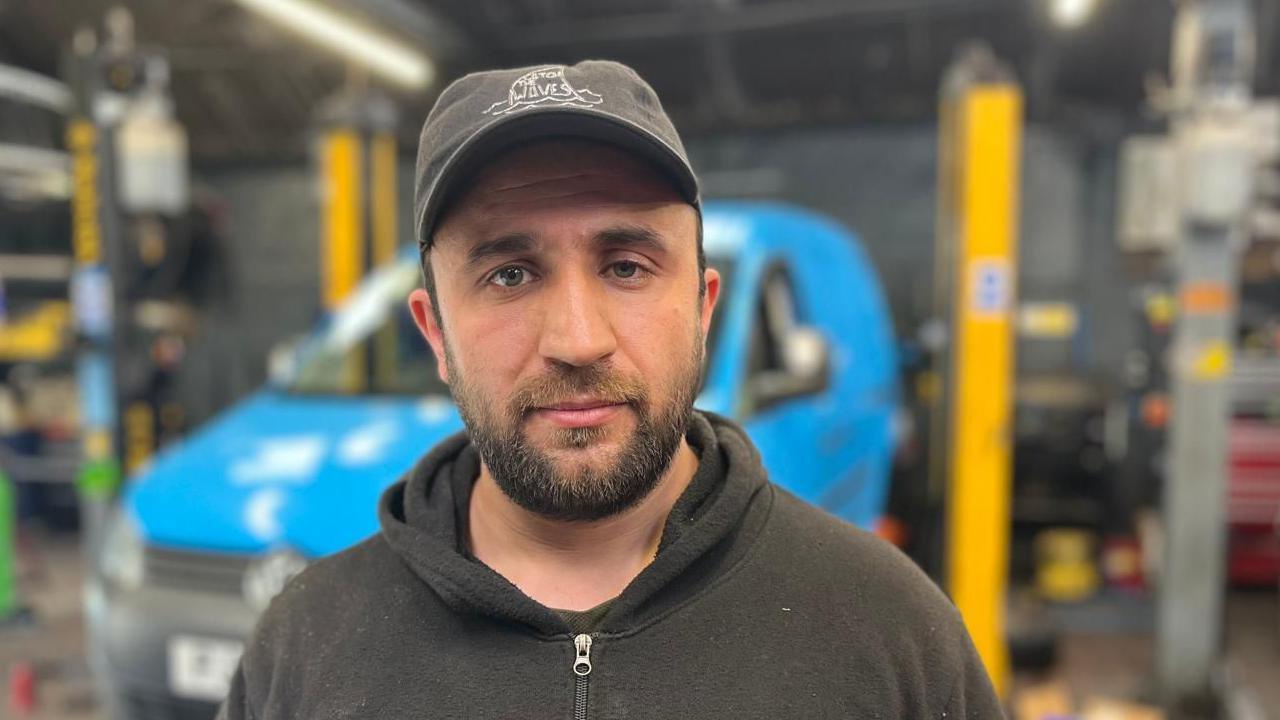
Faizudin Ahmadi was taken on as a mechanic after fleeing the Taliban
The 33-year-old's boss, Thomas Henderson, said he received bad reviews for his business, and even death threats, for helping local refugees.
There had also been "negativity" from customers who said they would not come back, he added.
"But, to that I say, fair enough, don't come back - we don't want your custom," he said.
"And I'll continue to speak out for people who haven't got a voice.
"There are hardworking lads in the area but no one gives them a chance."
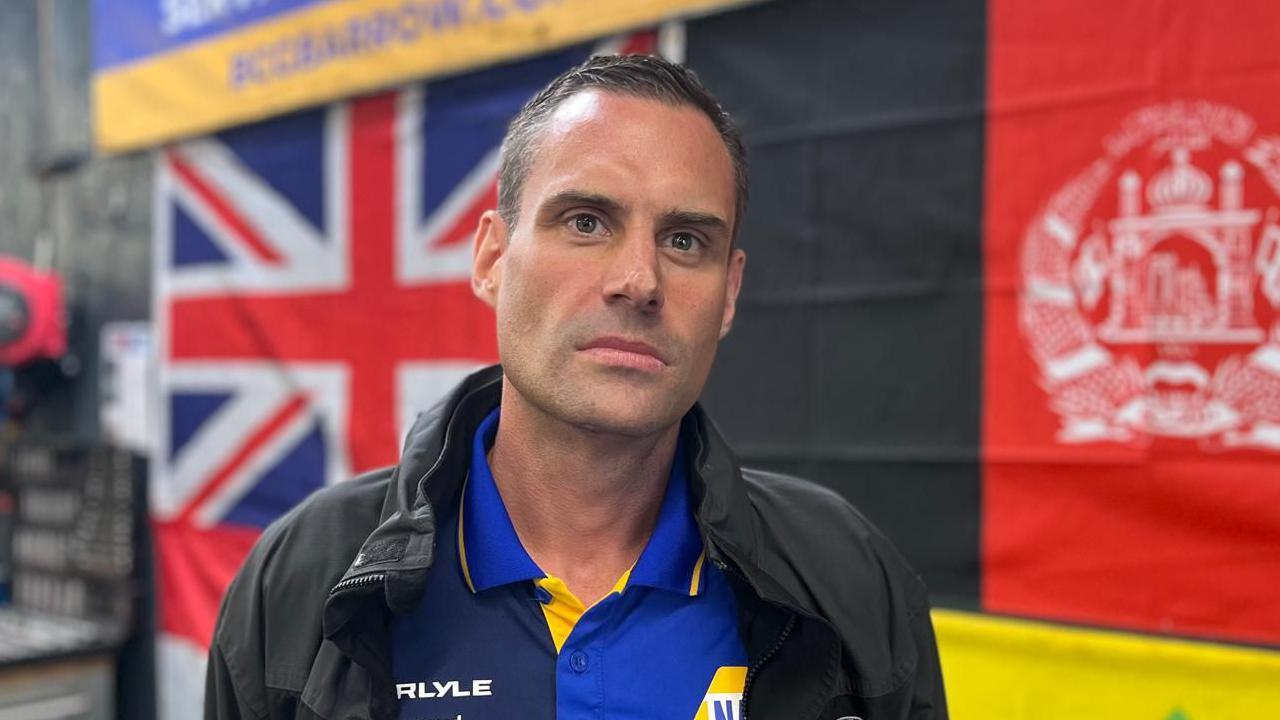
Garage boss Thomas Henderson says refugees in Barrow are not given a chance
Opponents of SLIC call it a "mega mosque", a "monstrosity in the Lake District" and a "blot on our landscape".
In an attempt to address rumours and disinformation, Westmorland and Furness Council, which replaced Barrow Council in 2023 after a local government reorganisation, issued a fact sheet pointing out the centre was not located in the Lake District National Park and would be a 33ft (10m) tall and 98ft (30m) long.
In a Facebook group set up to oppose the plans, environmental concerns have also been raised.
Only one member, Darren Gibb, gave his name when responding to a request by the BBC for views, saying he was concerned about traffic congestion, access from the main road, and parking.
"Doesn't fit in with the surrounding area," he said. "Looks out of place already."
He also said the building's roof-top terrace looked down into the gardens of nearby homes.
But Paul Jenkins, a Barrow resident and member of the groups United Against Fascism and Stand Up To Racism, said he did not believe parking issues and concerns about it being an "eyesore" were the full picture for some people objecting to the mosque.
"You only have to look at the number of locals who turned up to the protest brandishing Britain First flags, and the anti-Islamic and racist chants," he said.
"But I'm heartened by the number of local people who've come out in support of the centre and I hope that continues."
The council said its communities had a "long and proud history of providing safe refuge for those fleeing conflict and persecution" but this was "made harder by problems in the national asylum system".
'My neighbour moved house because of the new mosque'
The construction of the new £2.5m Islamic Centre in Cumbria is causing deep divisions
Home Office figures released this month show instances of religious hate crime more than doubled in Cumbria in the year ending in March - from 21 to 49.
Religious hate crime figures for England and Wales - not including Metropolitan Police (MPS) data - showed a 3% rise, although offences targeted at Muslims rose by 19%, with the government saying a spike was seen at the time of the Southport murders and subsequent disorder.
Race hate crimes in Cumbria rose by 39% - from 366 to 510 - compared with a 6% increase for England and Wales (excluding MPS).
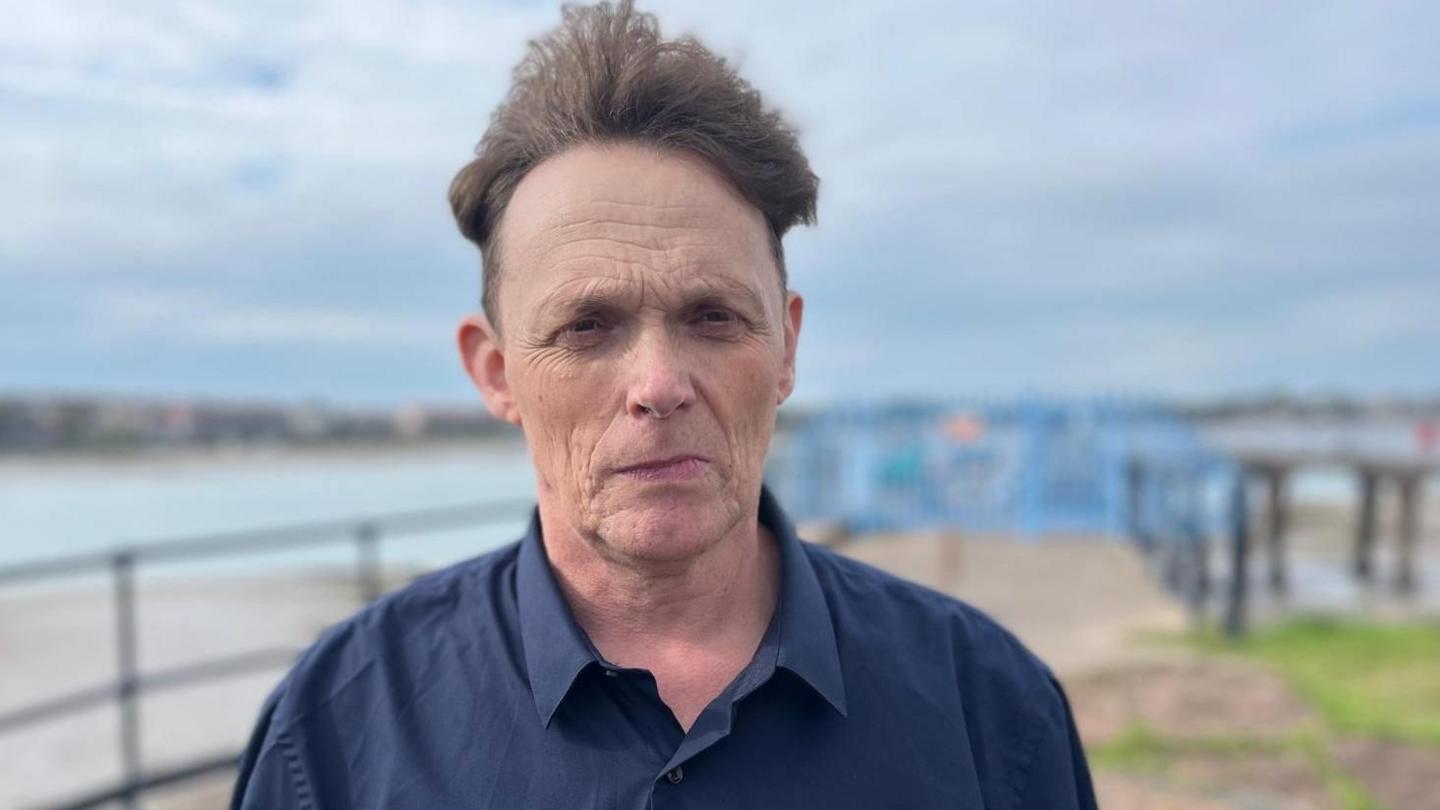
Anti-racist campaigner Paul Jenkins says there is support for the mosque
Dr Ghulam Jeelani, who retired this year after four decades as a GP in Barrow, is one of three trustees behind the Islamic Centre, alongside a practising GP and a consultant paediatrician.
Speaking exclusively to the BBC, the 76-year-old father-of-two said he used to pray in a house shared by other doctors.
"There's more Muslims here now so we need somewhere not only to worship but for funerals and as a community centre for our children," he said. "I have worked very hard, day and night, to serve the people of Barrow for 45 years so I don't think it's too much to ask to be given the blessing of the people I've looked after."
Asked about the protests against the mosque, he said: "There are good people and there are people who don't like foreigners or Muslims. All I can say is that we practise a religion of peace, and we consider ourselves British citizens who obey the law.
"Everybody should be able to practise their religion whatever their faith and we are no different."
The Islamic Centre's chairman Aban Hussain said all local residents were welcome at the centre to learn about Islamic teachings and "experience the value that a vibrant Muslim community brings to the social and cultural fabric of Dalton".
The protests, he said, were driven "not by local grievances but by outside groups seeking to use our town as a stage for their divisive agendas".
It is not the first time tensions have flared in Barrow, with demonstrations erupting in 2020 after Eleanor Williams, then 22, made false claims about being the victim of an Asian rape gang, sparking a spike in race hate crimes.
One of the men she falsely accused, Mohammed Ramzan, said his life had been ruined and the dispute over the mosque was "dragging it all up again".
"There are racists and Islamophobes in this town who seem to want to tarnish all of us with the same brush," he said.
"But we won't stand for it."
- Published3 April
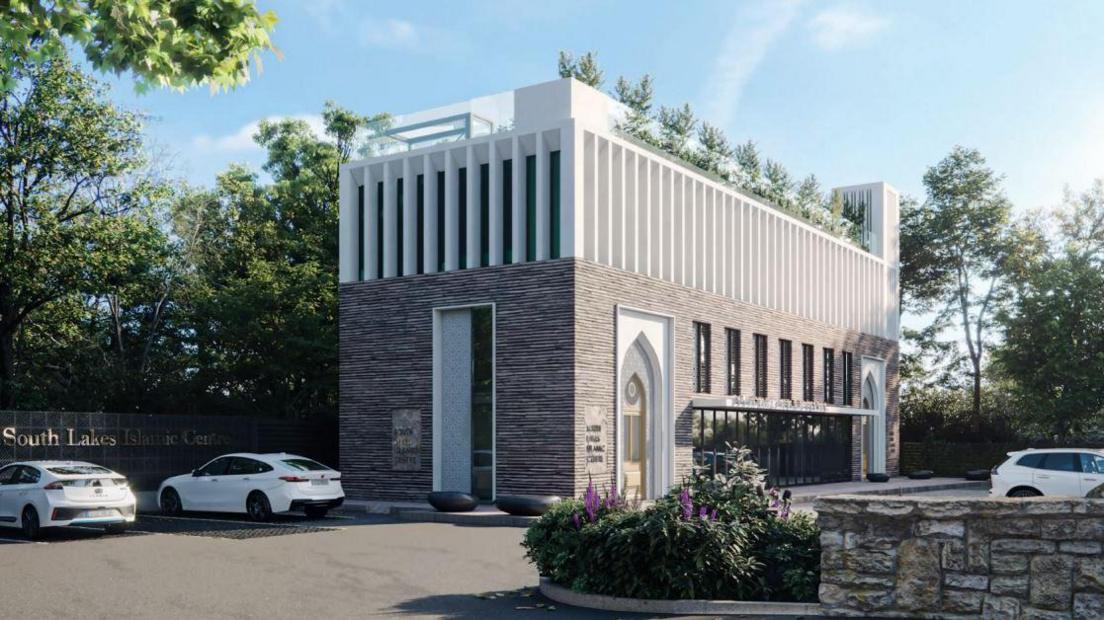
- Published3 September
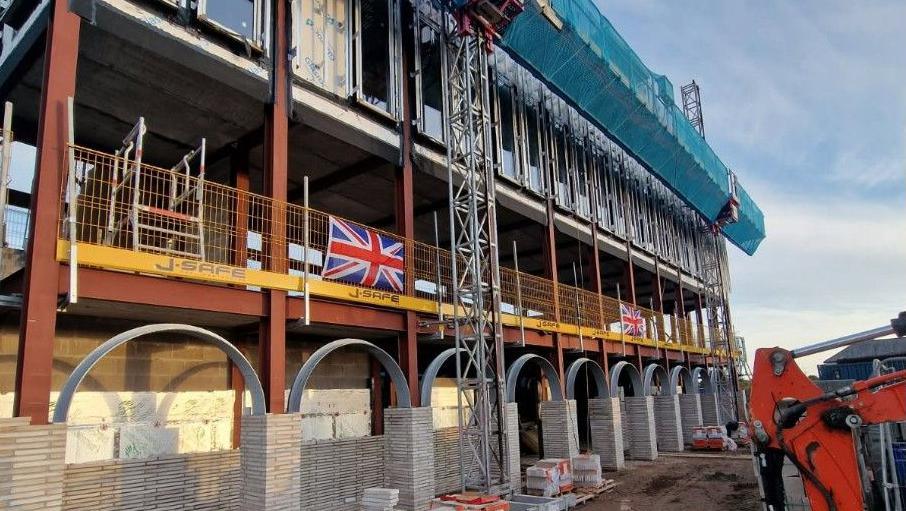
- Published15 December 2022
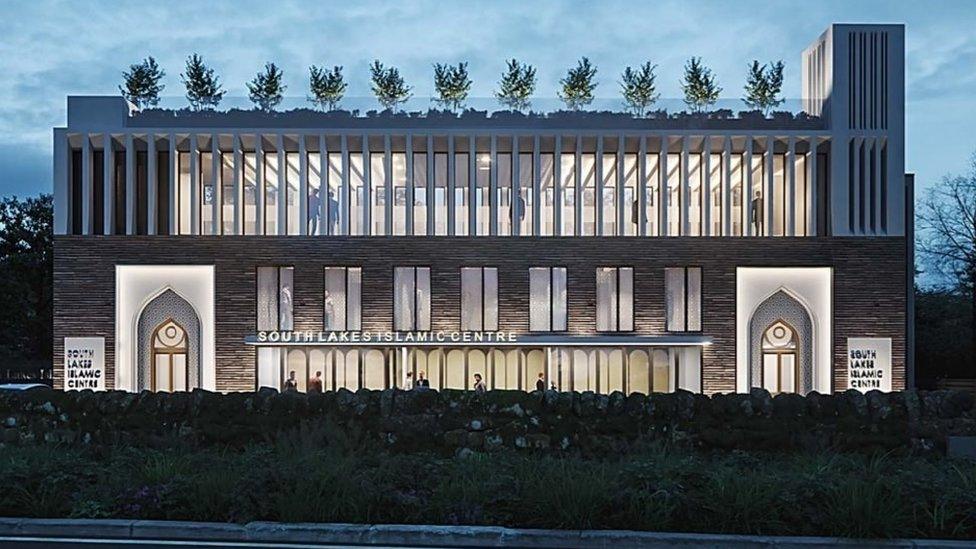
- Published22 July
